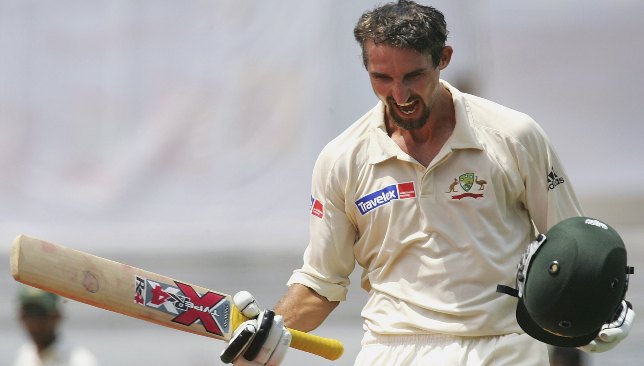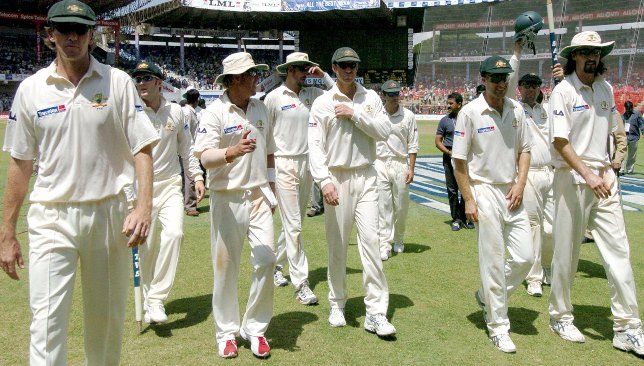
The watchful protector of crucial wickets during the last session of play – the nightwatchman – has been a handy tool in the test format since the beginning of the development of the game of cricket.
Jack Leach’s composed 92 off 162 deliveries in England’s second innings against Ireland on Thursday after opening the innings is a testament to the fact that sending in nightwatchman continues to be a master-stroke on more occasions than not.
It’s not uncommon to find captains send in a bowler to the crease when the team has lost less than three wickets so that the rest of the day can be played out and the top-order and middle-order batsmen can be protected for the fresh day.
We take a look at five of the best nightwatchman innings we have witnessed in the last couple of decades.
1. Jason Gillespie – 201 not-out (425 balls) v Bangladesh, Chittagong 2006
Jason Gillespie’s name is synonymous with the term ‘nightwatchman’. The Australian bowler boasts a tremendous record as one, scoring 327 runs at an impressive average of 40.9 and 116 balls per innings.
His unflinching and audacious innings against Bangladesh which encompassed a double-century remains the best nightwatchman’s innings of all time.
After restricting the hosts for just 197 runs, the Aussies started on the right foot and raced to 67 runs before the fall of their first wicket.
Gillespie then stepped in and out on 201* off 425 balls in an innings that contained 26 boundaries and two sixes. Australia registered a formidable total of 581/4, with the pacer leading the scorecard. Bangladesh succumbed in their second innings and the visitors handed them an innings-defeat.
2. Steven Finn – 56 (203) v New Zealand, Dunedin 2013
Nightwatchman Steven Finn displayed grit and determination en route to his first half-century which arrived against New Zealand at a time when England were desperate for a hero.
The visitors were bowled out for 167 runs before conceding 460 to the Blackcaps. England started well, with Alastair Cook and Nick Compton putting on 231 for the first wicket. They were still trailing by 61 runs before the lanky bowler took to the crease.
Finn survived the night along with Compton and led the charge on the final day. Compton fell early but a resolute innings from Finn ensured that England were 421/6 at the end of day’s play and hence avoided defeat.
The pacer faced 203 balls and contributed 53 runs, thus saving England from a crushing defeat.
3. Kumar Dharmasena – 40 (140) v India, Mumbai 1997
Yes, the umpire of the 2019 World Cup final enjoyed one of the best moments of his own playing career when he had a major role in denying India victory in a thoroughly one-sided affair in Mumbai.
The hosts put 512 runs on the board and dismissed dangerman Sanath Jayasuriya towards the end of day two. Dharmasena was introduced at number three to protect the middle-order batsmen ahead of day three.
The off-break bowler faced 140 balls en route to his 40 runs in an innings that resembled better than any of any other top-order batsman.
The nightwatchman led Sri Lanka to a respectable total of 361 runs in their first innings and returned in the second to complete his job. In the final innings of the game, Dharmasena faced 58 balls to prevent India from going one up in the series
4. Jason Gillespie – 26 (165) v India, Chennai 2004

We are not biased in favour of the lanky long-haired Aussie but he does have numerous instances of match-saving performances. Unlike his double-century against Bangladesh, this innings is mainly down to context than the runs on the board.
Australia had won the first Test of the four-match series but a defeat in the second could restore parity and take away the momentum. Hence it was imperative for the visitors to avoid a defeat.
The Aussies trailed India by 141 runs after the completion of the first two innings of the game. On the third day, the visitors stumbled to 145/4 and a defeat on day four was very much on the cards. Gillespie then walked to the crease as a nightwatchman in a quest to pull his team from the jaws of defeat.
The Sydney-born bowler held the fort with Damien Martyn at the other end for the remainder of day three and for four hours the next day. His 26 runs arrived at a strike rate of just 15.75, which means that the intended nightwatchman faced as many as 165 balls to keep his team in the game.
Eventually, the fifth day was washed out and the match was drawn against all odds. Surely, it’s time Gillespie is referred to as an all-rounder rather than a bowling nightwatchman?
5. Nicky Boje – 85 (198) v India, Bangalore 2000
The Indians sure have been tormented by nightwatchmen, by the looks of it. This time it was Proteas spinner Nicky Boje who took the initiative.
The hosts were dismissed for just 158 runs thanks to a top-order collapse against a fierce South African pace attack. If two wickets in the first innings of the game didn’t suffice, Boje returned as a nightwatchman to give the Indians nightmares with the willow.
Having lost Herschelle Gibbs towards the end of day’s play, the visitors saw it fit to send Boje to the crease. The spinner played out the rest of the day and returned to stage a solid innings on day two. His 198-ball 85 helped the Proteas put 479 runs on the board in their first innings.
The hosts replied with just 250 runs in their second innings, facing a humiliating defeat by a margin of an innings and 71 runs.